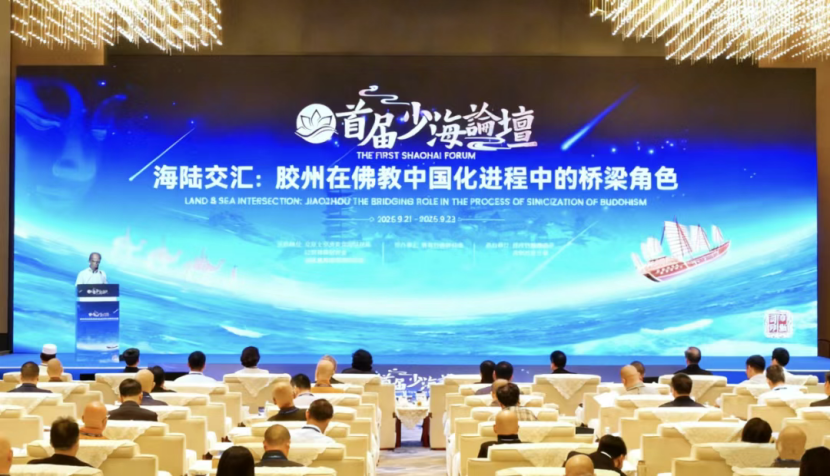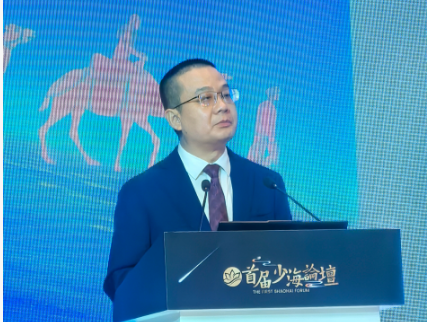Recently, the "First Shaohai Forum", co-hosted by Religious Culture Research Institute of Peking University, the Ethnic and Religious Studies Association of Shandong Provincial Ethnic and Religious Affairs Committee, and other institutions, was held in Jiaozhou, Qingdao. Nearly 100 experts, scholars and religious figures from over 30 universities, scientific research institutions and religious groups attended the forum, including the Chinese Academy of Social Sciences, Peking University, Renmin University of China, Fudan University, Nanjing University and Shandong University. Professor Edmund Sheng, a distinguished professor of Shandong University and executive director of the Shanghai Cooperation Organization (SCO) Research Institute, was invited to attend the conference and deliver a keynote speech.

With the theme of "Governance Wisdom of Sinicization of Buddhism in Jiaozhou and Construction of SCO's Multireligious and Multicultural Governance Model", Professor Edmund Sheng analyzed the Jiaozhou experience in the process of Sinicization of Buddhism. He pointed out that the concepts of "inclusive governance, adaptive integration and pluralistic coexistence" of Buddhism in Jiaozhou are highly consistent with the "Shanghai Spirit". At present, as globalization and regionalization develop in parallel, the SCO can learn from and absorb the historical wisdom accumulated in the process of Sinicization of Buddhism, innovate cooperation mechanisms, better realize the harmonious coexistence and common development of diverse religious cultures, and contribute to regional peace and stability as well as the progress of human civilization.

During the forum, Professor Edmund Sheng had in-depth exchanges with many leading scholars in related fields, such as Zhuo Xinping, a member of the Academic Division of the Chinese Academy of Social Sciences, Xu Yihua, a professor of Fudan University, Zheng Xiaoyun, director of the Institute of World Religions of the Chinese Academy of Social Sciences, and Zhang Zhigang, a chair professor of Shandong University. Focusing on the "thought of harmony and coexistence" and the "Shanghai Spirit", they discussed from historical, cultural, regional and other multi-dimensional perspectives how to give play to the hub function of the SCO, build a platform for religious and cultural exchanges among countries, promote countries to strengthen cooperation in non-traditional security fields such as the prevention of religious extremism, and provide suggestions and intellectual support for promoting cross-civilization dialogue and advancing regional peace and development.
